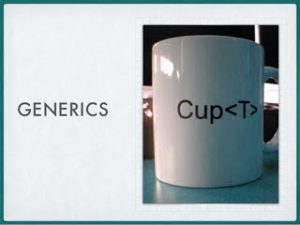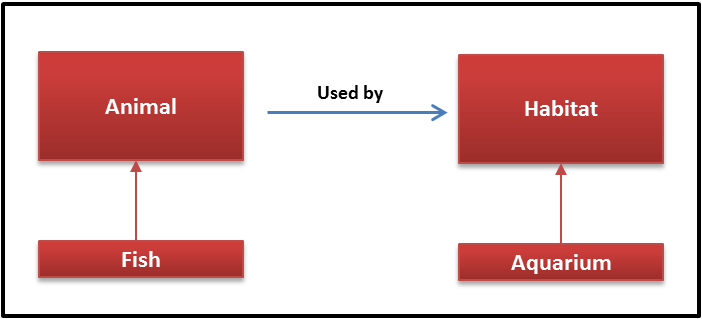4 Most Popular Java Use Cases | Java Applications
Free Java courses with 37 real-time projects - Learn Java
In this Java programming tutorial, we are going to learn about the Java use cases with applications. Here, we will get to know when to use java Programming Language and what is the use of generics in Java.
So, let’s start with Java Use Cases.
What is Java Programming Langauge?
Java is a general-purpose programming language. Java is used to create games. Minecraft is built in Java. Java is employed to build Android apps; most automation apps are written in Java. Even websites are engineered with Java, notable websites include LinkedIn and Google and are engineered mainly with Java.
Let’s Explore the features of Java Programming Language
Java Use Cases
To understand Java use cases, we must know about Java generics and where to use them.
a. What Is Java Generic?
Consider an easy add method, seen below.
public static int add(int a, int b)
{
return a + b;
}If we will abstract out the data type from the method, we tend to get a new method, as seen below. Here, is that the type parameter, like a parameter we tend to declare for a way. The value we pass or for a parameter is that the type argument, like our method argument we tend to pass.
public class Main
public static < T extends number > double addStaticMethod(T a, T b)
public < T extends number > double addInstanceMethod(T a, T b)
public static void main(String[] args) {
System.out.println(Main. < whole number > addStaticMethod(3, 4));
System.out.println(addStaticMethod(3, 4.3));
Main m = new Main();
System.out.println(m. < Double > addInstanceMethod(3.2, 4.3));
}
}Consider a data structure currently. For simplicity, let’s think about Array. Will we tend to create an array of any type? No, we can’t. We will create an array of integer, Float, or of any specific kind. Forget about the array implementation of any language and ask, “Can we tend to abstract out the type from this data structure?”
Answer: Yes, we can. In Java, ArrayList is such a class that will it. When you say List = new ArrayList<>();, it creates an array of String. Once you pass an integer as type argument instead of a string, it creates an array of integer, and so on.
Let’s discuss Java Array vs ArrayList
Despite having said that regarding ArrayLists, we tend to are not going get into their implementation thanks to its complexity. So, we tend to shall take a single box and investigate the way to build the box — a Generic box from a particular typed box.
Consider the subsequent code. you’ll be able to put a String into a SpecilizedStringBox Object and you’ll be able to get a string out of it.
public class SpecilizedStringBox
{
private String item;
public String getItem() come item;
}
public void setItem(String item)
}Now if we tend to abstract out the information type “String” from the SpecilizedStringBox, we tend to get a generic box described by the subsequent code, which might take String, Integer, Boolean, or any data type, of course.
public class GenericBox
{
private T item;
public T getItem()
{
return item;
}
public void setItem(T item)
}So, using Generics is all regarding abstracting {the type|the sort|the kind} from a way or a class to make generic methods or classes applicable to more type than a specific type.
A simple answer is to abstract out data types, allowing you to reuse code and to keep up it a lot of simply.
Do you know String vs StringBuffer vs StringBuilder in Java
b. Where Do Generics Apply in Java?
It looks like we will apply Generics by refactoring an existing specific typed method or a box. Till we tend to subsume data structures and primitive data types. However, we tend to do create heaps of data types with various classes. Combination the Generic Programming Paradigm with OOP makes it terribly troublesome to form an alternative of whether or not to use generics. Understanding, wherever you’ll be able to apply them, solves half the matter.
Java incorporated Generics in Java 5.0 to achieve:
- Type safety ensures that after the sort argument is applied, no other data type is allowed into the method or box and avoids the need of casting.
- Generic programming/parametric polymorphism
c. Why we use Generics.
i. Use Case kind 1
Algorithms and Data Structures are first-class Use Cases for Generics
Algorithms go hand in hand with data structures. An easy change within the organization in an algorithm may change its complexity. Data within the data structure has a type. Abstracting out this sort with a type parameter is achieved with Generics. Input parameters of any algorithm have a data kind. Abstracting out the types from input parameters is achieved with Generics. Generics were designed mainly for Java’s collection API.
If you write your own data structure, do try and apply Generics.
ii. Use Case type 2
The value typed Boxes or Single Component Containers
Data structures with the Generics type are Generics Boxes. Sometimes, Generic boxes do seem as one component instead of a set. They solely act as holders or wrappers of a particular data kind. For example Entry in a Map, Node, Pair, and algebraic data sort like Optional, Choice, etc.
Let’s revise Linear Data Structures in Java Programming Language
Such use cases sometimes justify their use while others do not. A box will hold any type of item — earlier, we tend to may place anything into a box. However currently we tend to start to classify: This box is for toys, the next box is for pens, etc.
A Cup as a Holder will hold either Tea, Coffee, or any beverage. Cup may be a good example of real-time object sorts (Tea, Coffee, etc.) holders. A Bus will carry each Man or women. If we tend to build it kind safe to permit solely women, we will call it a Ladies’/Women’s Bus. Uncalled-for to mention, it should be or might not be appropriate. The catch is that business use cases, particularly wrappers or Holders, also give opportunities to use Generics. ask whether or not the business wrapper or holder’s usage is inclined toward the info structure reasonably use. If so, generics usage can do higher.
iii. Use Case type 3
Generic Util methods With Abstract classes
Generic algorithms needn’t be always tied to particular data structures or algorithms. Sometimes, it is applied to most abstract teams of data structures based on the contract the concrete implementations satisfy.
“Collections” util class
Collection Factories methods (Empty, Singleton):
- emptyList, emptyMap, emptySet, etc.,
- singleton, singletonList, singletonMap etc.,
Read About Singleton Class in Java – Two Simple Ways For Implementing
Wrapper methods (Synchronized, unmodifiable, Checked Collection):
- synchronizedCollection, synchronizedSet, synchronizedMap, etc.,
- unmodifiableCollection, unmodifiableSet, unmodifiableList, etc.,
- checkedCollection, checkedList, checkedSet, etc.,
A Few a lot of Generic methods fall under Four Major categories
Changing –
- The element order in a list: reverse, rotate, shuffle, sort, swap
- The contents of a list: copy, fill, replaceAll
- Finding extreme values in a collection: max, min
- Finding specific values in a list, examples binarySearch, indexOfSubList, lastIndexOfSubList
They represent reusable functionality, therein they apply to Lists (or in some cases to Collections) of any kind. We will notice a lot of Generics methods applicable to most of the collection types generally.
iv. Use Case type 4
Generic methods in Parallel Hierarchies of classes
CrudRepository and JpaRepository, in Spring Framework, are built with Generics. Create, update, find, findAll, delete, etc. are generic methods applicable for all entities.
For every entity, a parallel DAO class must be created, thence a parallel hierarchy of classes seems in these cases. The DAO pattern isn’t the only case wherever they seem.
It usually occurs if we tend to apply the Strategy Pattern to resolve our business drawback by decoupling the method from an object to produce several possible instances of the method.
Read about Java Abstract Data Type in Data Structure – ADT
Whenever we tend to add a new class, we tend to add a parallel test case. If we tend to need factories, we tend to add a parallel factory class. Parallel hierarchies of classes occur in business use cases. Take into account a new vehicle, say “Bus”, is additional to following vehicle hierarchy. Therein case, we tend to may have to feature the “Bus Driver” class.
So, this was all about Java Use Cases. Hope you like our explanation
Conclusion
In this Java Applications tutorial, we studied about Java use cases and generic use cases of Java. If you have a query, feel free to ask in the comment section.
Related Topic- Java Comments
Reference
Did you know we work 24x7 to provide you best tutorials
Please encourage us - write a review on Google









